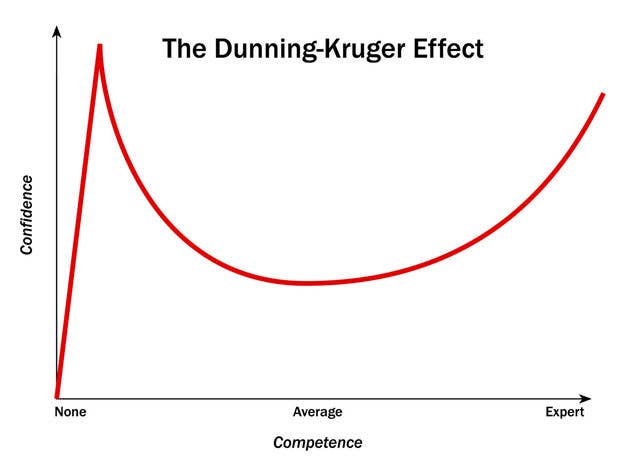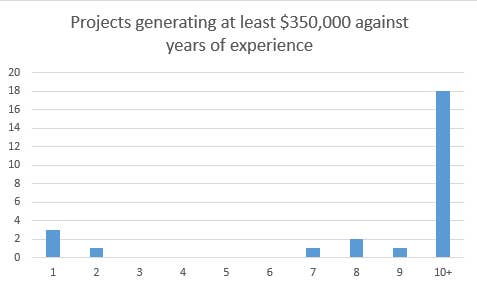It's time we stopped encouraging indies
The Fall director John Warner rethinks the ethics of guiding aspiring developers without acknowledging some harsh realities
"Remember, it costs nothing to encourage an artist, and the potential benefits are staggering. A pat on the back to an artist now could one day result in your favorite film, or the cartoon you love to get stoned watching, or the song that saves your life. Discourage an artist, you get absolutely nothing in return, ever." - Kevin Smith
Amen, brother. Almost brings a tear to my eye. Or, it would, if my eyes hadn't been wept dry from all the lost savings, dumped wistfully into the toilet to create indie games that will never be played.
Still, it's an honourable sentiment and one I've tried to live by. Who could possibly argue with it? What cold-hearted person thinks it's a good idea to stomp on the dreams of a young person? Where would I be without everyone who encouraged me!? As a general rule, I try to take time and help any beginner (who asks me) to understand what they want and how they might get there, and I never discourage.
Even though the market has become full to bursting and I fear that many of them are running towards a horrible cliff, I never discourage. Even when I see young people, stuck in the early stages of the Dunning-Kruger effect, who want to become indies without any experience in the Triple-A industry, I never discourage. Even when I see students enrolling in predatory schools that count "indie" as alumni career placement to bilk students into bloated programs they don't need for jobs they won't get, I never discourage. Frankly, it's time I looked at myself in the mirror and asked if I'm really acting ethically. Am I an enabler? Well... I'm done.
I'm tired of seeing the waves and waves of absolute shit on the Steam storefront while believing I'm doing anyone a favour by telling them to pile on. I'm tired of hearing about people who have mortgaged their house to make a puzzle platformer. I'm tired of seeing those syrupy "You know, you should take this online Unity course" YouTube ads, and most of all, I'm tired of letting young people fall prey to this kind of nonsense because I'm too afraid of accidentally snipping the wings of the next Michelangelo.
So, to every person wanting to get into game development: I want you to succeed. I do. But it's time that we talked about some cold realities, if for no other reason than to call out some obstacles you'll face.
#1: What makes you think you can be indie, if you can't get a job?
I know that if you're creative and a bit of an independent thinker you might be a bit cynical about the Triple-A industry, or any establishment for that matter. Let me explain what the Triple-A industry is. It's a large institution that has evolved to create and market products that are of sufficient quality (in the eyes of the bulk of the market) as to be financially sustainable, or profitable. This industry hires people because they have the skills to contribute to that end goal. Please ask yourself: if you do not have the skills required to get a single-discipline job in a machine designed to create financially sustainable products, why would you believe that you can make a financially sustainable product by yourself, while working in multiple disciplines?

The games industry is not a collection of people who got lucky. It's run by extremely intelligent people who are skilled in ways you don't even know about yet. Better yet, you can surround yourself with these people, and someone will actually PAY you to do that. Then, in five or so years, when I'm broke from my choice to make indie games, I might be working for you. I'm only half kidding. Next to some of the artists I've worked with, I am barely qualified to make a pamphlet, and every year I spend as a generalist removes me further from them. So find those people. Learn from them.
If you're just starting out, here's my practical advice: Pick a discipline and work at it. If you want to be an artist, for example, then make getting a job as an artist your first goal. If you want to be a programmer, consider going to school and studying computer science. Better yet, find a working programmer and do what they did.
#2: Most successful indies have extensive experience in the games industry
The fantasy that someone can simply go independent and make money is, at best, a little incomplete. While there are no doubt a handful of examples of people who became successful without first holding a job, many, many, many indies cut their teeth at a desk in an office with a lanyard around their neck. It's been my overwhelming experience when I'm at conferences like GDC, that if I meet an indie with a successful project, I usually discover that they've had a significant amount of industry experience first.
This piqued my curiosity, and I'm fortunate to be on a mailing list of other indies, so I sent out a poll. I asked about income earned on their most lucrative project, and on that project, what was the amount of experience for the most experienced team member. I got back the following data. Please note - this is a very small sample size, and it's possibly biased in ways I do not realize. This is by no means scientific. However, I believe it's worth considering:

$350K is not exactly a high bar, but clearly teams with experience are massively over-represented here. Is this a surprise to anyone?
If you're just starting out, please, for your own sake: learn to walk before you run. For that matter...
#3: Now is not the time to express your high-level direction ideas. Be patient. People who tell you otherwise are trying to take your money
Anyone who knew me when I was entering the industry probably remembers that I was a pretentious bull-headed little prick, and one of the reasons for this was that I didn't understand this lovely thought from the great Ira Glass.
You probably have a lot of your own ideas for games, and strong opinions about the games industry for that matter. Being focused on making your will manifest is something that you can do once you've closed the massive gap between your taste and your skill, and the best way to do that in this industry, in my opinion, is to set aside your grand aspirations and do what you can to serve.
When I was a budding young spiritualist, all wrapped up in philosophical movements and trying to take time to meditate, I would look with contempt at muscle-gun-shooter-bro games like Gears of War.
I'm not here today to tell you how cool Marcus Fenix is. I encourage you to hold any opinion you have about any part of the industry. However, whatever opinion you have about an IP like (for example) Gears of War, any one of us would be incredibly lucky to work on something like that, and if you don't mind me saying so, you should salivate at the opportunity. Despite being somewhat against war games at the start of my career, I learned so many things from working on Company of Heroes that I couldn't begin to enumerate them. Even if I wanted to make an anti-war game as an indie, it would have been Company of Heroes and the aptly titled "Dawn of War" that taught me how to do that.
Be patient. Take your time. You'll get your chance. Probably, the more patient you are, the faster you'll be qualified.
This point is also important because part of the lie that's being sold to young would-be indies is that they're ready to make their magnum opus, if only they'd be willing to sign up for an online course, buy some software, or go to school. Being an indie is just a few asset store purchases away, isn't it? "Coding your own games" apparently, "is easier than you think. You know, you should take this online Unity course." Yeah, or maybe you fucking shouldn't. Schools everywhere are hungry to tell you that you can go your own way, if only you just pay them first. And speaking of that...
#4 School is great, but be careful with generalist programs
This section is relevant to would be indies, but also anyone starting their career. Schools will happily prey off of your desire to avoid specialization and make your own games.
Let's say, for example, that a team of students in a game design program have gotten to the point that they're making their own thesis project and have an idea to make a complex game with a crazy neon art style. They begin working on the project, but it suffers from massive unit identification issues because the game's colors are psychotic. When mentors attempt to tell them this (and they do) the students are hesitant to take the advice because of their project goal to create a visual neon explosion of a game.
What's the problem with this picture? The problem is that the project is fundamentally flawed. Because of the high-level art direction failure, it's actually getting in the way of showcasing skills that the students might actually get hired for. The problem is that the students should never have been given high level autonomy in the first place. They have come here to learn, but the school knows that they can attract more students if the students know they'll get a chance to work on their own game. The school is preying on the students' desires to express their indie fantasies before they're ready, and frankly, they don't care. They know full well that they make more money that way, despite the students being worse off.
I part-time mentored for a short while in a game design program, and eventually left after becoming disenchanted with the program's structure. I don't want to throw anyone under the bus (because I know people who managed the programs there and they're great people) but I have some serious concerns about game design programs in general. I think they're sometimes horrific immoral meat grinders.

First of all, if you want to get a job in the games industry in any specialized role, like programming, or art, you should specialize as a programmer, or artist (I took VFS' 3D art program, and it was pretty damn good). The idea that it helps you to have some sort of general knowledge about game development is, in my opinion, horse shit. If I'm hiring a junior artist, I'm doing so because I have a pipeline established for that person to do very specific work under very specific supervision. I'm going to have training wheels for them anyway, so it's valuable to me to hire someone who can make well-constructed 3D art and train that person to use my highly rigid pipeline. It is less valuable to me to hire someone who's not quite as good at making art, but they know a little Unity. In my opinion, the clearer you are about your target job before going to school, the better off you'll be, and frankly, I don't buy this whole "we teach you a bit of everything so you can decide while taking the course" nonsense. In fact, that's one of the worst parts of this whole charade.
The worst part of my experience as a mentor was how many students entered the program without really knowing what they wanted and ended up as "team players" doing something that they didn't care much about because their project needed it. This is the most tragic waste of money I can imagine. If you're spending tens of thousands of dollars and end up making mediocre environment art (for a neon game that's hard to play) when you'd really rather be doing game design, but you didn't have the social skills to navigate your way into a position of social significance enough to choose your favourite role on a team, well, I'd say that the school has completely failed you. My school actually let kids sort themselves into groups. Have they not read Lord of the Flies? Do you have any idea how many Piggies I've seen get their head metaphysically smashed with a role that helps their career not at all?

Not that schools who offer specialization are always ethically clean. I know a girl who is two hundred thousand dollars in debt after a four-year course to help her get a job in the games industry as an artist. Do you know what was a part of that course to fill the space? NURBS modeling. Some of you who are already artists will realize how insane that is. For the rest of you, to describe this method of 3D modeling as archaic would be an understatement. It's so horrendously difficult to use this method and obtain anything approximating production quality that it might be literally impossible. Its only rightful place is in a museum. Teaching it to students to help them get an entry-level job in the games industry is absolute bare-faced predation. It's exploiting the ignorance of a young person to sell them useless junk for money they don't have.
#5 - Finally, please don't let this article crush you
To each of you who are reading this article and trying to get into the industry: Despite the fact that we have a glut in the market, and creative people are being financially slaughtered left and right, it's still an exciting time to be an indie. There is a lot of creative growth happening, and although I'd love it if I was the only guy selling games, I'd rather you felt empowered to express your creative selves, if that's what you really want.
Furthermore, I don't mean to adopt the role of anyone's father. You've got to find your own way through life, and I say go for it. However, I would be irresponsible if I pretended that things aren't bleak right now, and if you're entering the games industry, I don't think it's wise to target being an indie. Take your time. Pick a discipline that you enjoy. Practice it until you're employable. The best way forward might be with an optimistic attitude, but not with a delusional one, and more and more, it's looking to me that wanting to be an indie might very well be delusional.
On the other hand, there will also be people making points like these with darker intentions. You're a human being who deserves to be treated with dignity. Please don't take this article as a way of excusing some asshole who offers you an unpaid internship and tells you to be grateful for it. I have no doubt there are a lot of developers who will make similar arguments to mine to justify some form of unnecessary disrespect, dominance, or exploitation. There is no end to people who will crush your soul for profit. However, to the people out there with big encouraging smiles, it seems to me that a little bit more soul crushing than we've been doing is probably a good idea.
John Warner is the Director at Over The Moon, a small studio aiming to create games with engaging stories. They are best known for The Fall series.